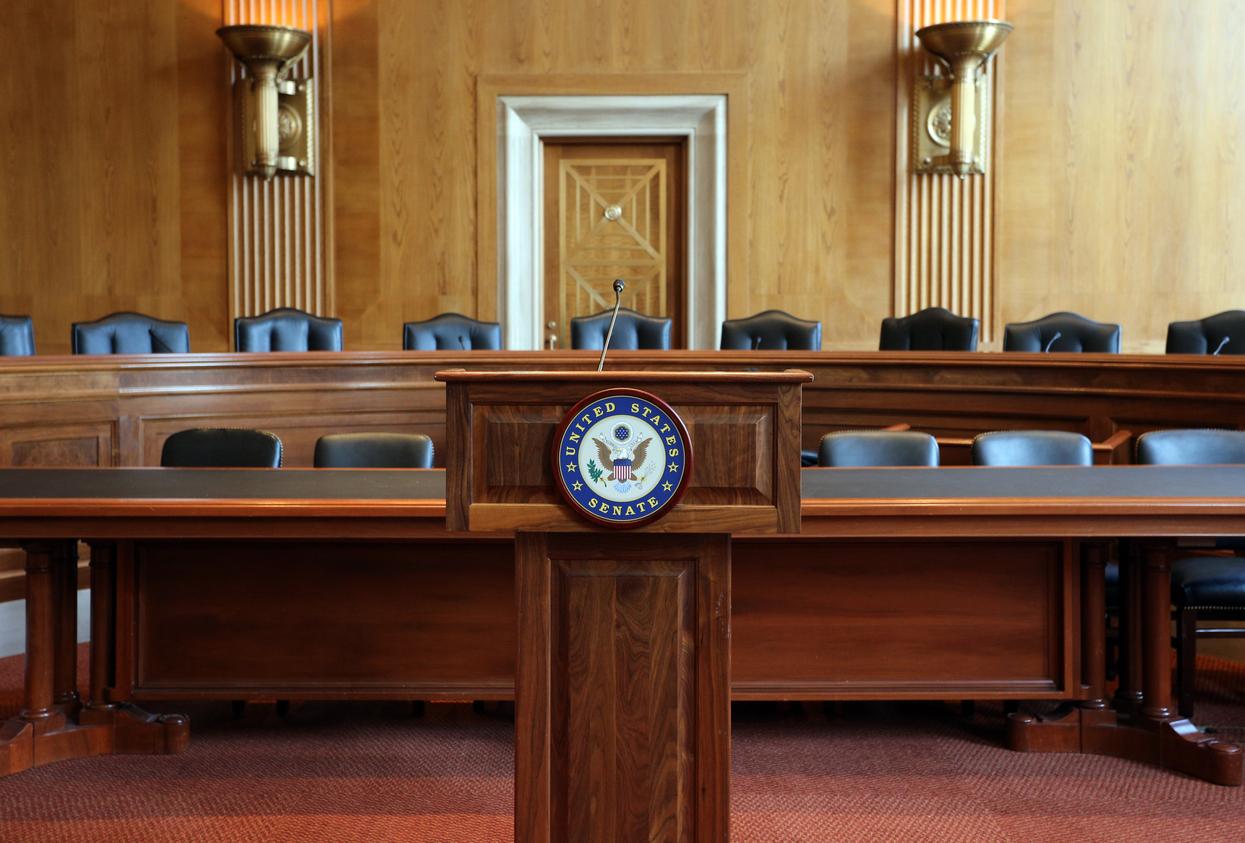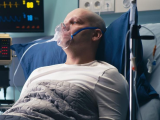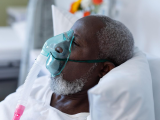Before the Senate's Health, Education, Labor, and Pension (HELP) committee today, patients battling long COVID and the mother of a teen patient detailed the day-to-day struggles with the condition and the obstacles in getting care.
Also, healthcare providers and researchers described the challenges in managing and studying a condition with a wide spectrum of health impacts and debilitating effect on patients. Today's hearing attracted a large crowd of patients and their advocates that spilled over into a second room.
In opening remarks, committee chair Sen. Bernie Sanders, I-Vt., said long COVID—affecting an estimated 16 million Americans of all ages and backgrounds—hasn't gotten the attention it deserves. Along with the escalating health impact, with rising risks from repeated infections, he said long COVID is also a drain on the nation's economy, with 4 million people out of work and $170 billion in lost wages.
Vulnerable patients face multiple obstacles
During testimony from a panel of patients, Angela Vasquez, MSW, described being a runner for two decades before she developed long COVID after an infection in 2020. Some of her symptoms include blood clots and myalgic encephalomyelitis/chronic fatigue syndrome (ME/CFS). Mostly homebound, she is on 12 medications and receives weekly intravenous medical treatments at the hospital.
Though she has good insurance coverage through her employer, Vasquez said she and other long-COVID patients have to fend for themselves within the medical system to have their condition taken seriously and get treatments covered. "Having insurance doesn't ensure access to care," she said.
Having insurance doesn't ensure access to care.
Rachel Beale, MBA, from Southampton County, Virginia, has been living with long COVID for 3 years. Symptoms, including chronic fatigue, chronic pain, nausea, and dizziness, kept her from returning to her job as a human resources administrator at a community college. First, she went on short-term disability, then long-term disability. "Nothing prepares you for 'you no longer have a job,' " Beale said.
Though long COVID is a disability under the Americans with Disabilities Act, her applications for Social Security disability have been denied twice.
Nicole Heim said her now 16-year-old daughter contracted COVID during band class in September 2021. A month after recovery, she received a panicked call from the school nurse that her daughter was short of breath, with an extremely high pulse rate and unable to move her arms and legs.
"This is the kind of phone call no parent is ever prepared to receive," she said. Initial symptoms included extreme fatigue, low blood pressure, increased heart rate, rapid weight loss due to daily nausea and vomiting, severe brain fog, and depression.
After months of waiting and navigating prior authorization hoops in Medicaid, Heim's daughter started receiving care at a long-COVID specialty clinic and joined a National Institutes of Health (NIH) pediatric COVID outcomes study.
Like other witnesses, Heim detailed obstacles long-COVID patients face that could be eased with help from federal health officials and Congress. She said screening protocols should be developed to help providers and patients identify long COVID and that doctors should be able to provide care for long-COVID patients by telemedicine across state lines for initial and follow-up visits.
Researchers say moonshot urgently needed
During the second panel, experts, including doctors and researchers, described their work on long COVID and had several suggestions for improving patient care, as well as research on the condition, its diagnosis, and treatments.
Michelle Harkins, MD, a pulmonary and critical care physician at the University of New Mexico, described treating a primary care doctor who had breathing difficulty and brain fog months after her COVID illness. Though diagnostic tests were normal, the doctor left her job because she didn't have the mental recall to do her job.
Harkins is an investigator for the NIH RECOVER study and is part of a group that set up a peer network to help doctors treat long-COVID patients, which got support from the federal government and includes 800 health providers.
Besides sustained long-COVID research support, Harkins suggested three other steps, including easing access to patient care, preventing long COVID by removing barriers to vaccination, and ensuring that clinicians have access to the most up-to-date best practices.
Ziyad Al-Aly, MD, a clinical epidemiologist at Washington University in Saint Louis, is part of a team that first characterized long COVID. He also emphasized that the best way to prevent the condition is to prevent COVID infections though a multipronged approach, which includes the development of oral or intranasal vaccines that can induce mucosal immunity, developing more broadly protective vaccines that have more durable coverage, and improving building ventilation.
He also pointed out that there are no Food and Drug Administration (FDA) approved treatments for long COVID. "This must change. People suffering from long COVID needed treatment yesterday," Al-Aly said, adding that current treatment trials are too slow and too small to provide definitive answers.
People suffering from long COVID needed treatment yesterday.
Charisse Madlock-Brown, PhD, associate professor of health informatics at the University of Iowa, is also involved in NIH RECOVERY trials, looking at electronic health record data relating to long COVID. She described several challenges in identifying long-COVID patients, which she said leads to underdiagnosis.
"A moonshot initiative is urgently needed in the wake of the persistent and global challenge of long COVID," she said. "The current landscape of research into this condition is alarmingly disjointed."
Tiffany Walker, MD, an internist at Emory and RECOVER trial researcher who cofounded a long-COVID clinic at Grady Memorial Hospital, said the rate of long COVID in the population is now similar to diabetes—a disease that receives substantial research support.
Along with boosting research support, Walker urged federal health officials to expand repurposed drug trials independent of the RECOVER trial mechanism, ask FDA to detail a protocol for speeding up long-COVID drug development trials, expand capacity and education among primary care physicians, and establish a new institute at the NIH for addressing long COVID, ME/CFS, and other infection-associated chronic diseases.
Senators connect with concerns, raise tough questions
At today's hearing some senators shared their personal experiences with long COVID, or that of their loved ones.
At the start of the hearing, Sen Tim Kaine, D.- Va., teared up after patient testimony, including two from his state. Kaine said he has had mild long COVID for 4 years and said he feels for long-COVID patients, who sometimes face skepticism about their condition, sometimes from their own doctors.
Several Senators pressed the patients and researchers about what more the federal government can do to ease obstacles to care and add resources for clinicians and scientists.
Other senators have loved ones who have battled the condition. Sen Roger Marshall, MD, R.-Kan., said his family member has had long COVID for 2 years. He said he's frustrated that the current NIH trials seem to be focusing on risk factors and causes rather than diagnosis and treatments.
He also suggested that the development of long-COVID treatments be modeled after BARDA, which has played a pivotal role in working with the private sector.
Bill Cassidy, R.- La., raised concerns about long-COVID treatments developed with NIH funding and how that might hamper private investments. Last month, President Joe Biden promised to press for fair prices from drug makers who get federal research funding.



















